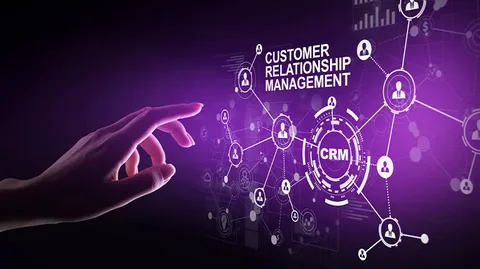Businesses that rely on a wide range of software tools to manage operations, marketing, sales, and customer support. CRM Integration Solutions ensure that these systems work together, sharing data in real time and reducing manual tasks that often lead to errors and delays.
By integrating your CRM with other tools, you create a unified digital ecosystem. This improves team collaboration, accelerates decision-making, and enhances the customer experience at every touchpoint.
Understanding What CRM Integration Means
CRM integration connects your customer relationship management software with third-party applications. These could include marketing platforms, accounting software, help desk tools, or e-commerce systems. The goal is to enable seamless data exchange between systems.
With integration in place, updates in one system reflect automatically across others. For example, a new lead captured from your website gets added to your CRM and becomes immediately visible to your sales team.
Why Integration is a Must-Have for Businesses
Modern companies deal with vast amounts of customer data daily. Without integration, valuable insights can get stuck in isolated software tools, leading to inefficiencies. Integration breaks down these data silos.
When your CRM talks to your marketing and support systems, your teams operate with full context. This improves communication, automates follow-ups, and ultimately helps you build better customer relationships.
Choosing the Right CRM Integration Platform
Selecting a CRM integration platform depends on your existing tech stack, company size, and long-term goals. Some solutions offer simple plug-and-play connections, while others support highly customizable workflows for complex needs.
It’s important to choose a platform that not only supports your current tools but can also grow with your business. Scalability, reliability, and security should be top priorities during evaluation.
Real-Time Syncing for Instant Updates
Real-time syncing is a crucial feature of any modern CRM integration. When systems are instantly updated, your team doesn’t need to waste time refreshing dashboards or manually entering data.
This feature ensures that every department works from the same up-to-date information, minimizing errors and improving productivity across the organization.
Automation That Saves Time and Money
Integrated CRMs allow you to automate routine processes like lead routing, follow-up emails, task assignments, and reporting. This reduces the burden on your team and improves consistency in customer interactions.
When automation is properly set up, your employees can focus more on strategy and less on repetitive tasks. This leads to higher job satisfaction and better results.
Improved Customer Experience Through Data Sharing
Integration helps create a full view of every customer interaction, from the first website visit to post-purchase support. This context allows teams to respond faster and with more personalized messaging.
Whether your customer reaches out via email, chat, or phone, your team already knows who they are and what they need — without asking the same questions repeatedly.
Top Tools Used for CRM Integration
Several platforms dominate the CRM integration landscape. Zapier and Make offer easy-to-use automation for smaller teams, while tools like MuleSoft and Workato cater to enterprise needs with advanced capabilities.
These platforms vary in complexity and price, but all aim to unify your data and eliminate disconnected workflows. The right choice depends on your team’s technical expertise and the level of customization you require.
Avoiding Common Integration Mistakes
A rushed integration can cause more harm than good. Poor planning often results in mismatched data fields, broken workflows, or frustrated users. Start by clearly defining your goals and testing every connection thoroughly.
Digital marketing agency UAE Involving your team early and offering proper training can help ensure smooth adoption. When done right, integration becomes a valuable asset instead of a costly headache.
Security and Compliance Shouldn’t Be Overlooked
Handling customer data comes with responsibilities. Your integration solution must meet modern security standards and comply with regulations like GDPR or HIPAA, depending on your industry.
Make sure your data is encrypted during transfer and storage. Choose platforms with a strong track record for privacy and regular security updates.
Preparing for the Future of CRM Integration
CRM integration continues to evolve with advances in AI, machine learning, and no-code platforms. In the coming years, we’ll see smarter automation, predictive customer insights, and more user-friendly interfaces.
The businesses that stay ahead of these trends will gain a major advantage in delivering faster, more personalized, and more efficient service across every channel.
Final Thoughts on CRM Integration Solutions
Investing in CRM integration isn’t just about convenience — it’s about building a foundation for long-term growth. With the right tools and strategy, your business can become faster, more agile, and far more customer-focused.
Whether you’re managing leads, closing deals, or offering support, integrated systems ensure every step of the process is seamless and informed. Now is the time to take your CRM to the next level.
